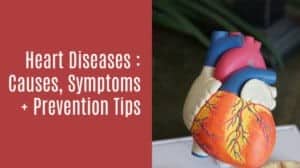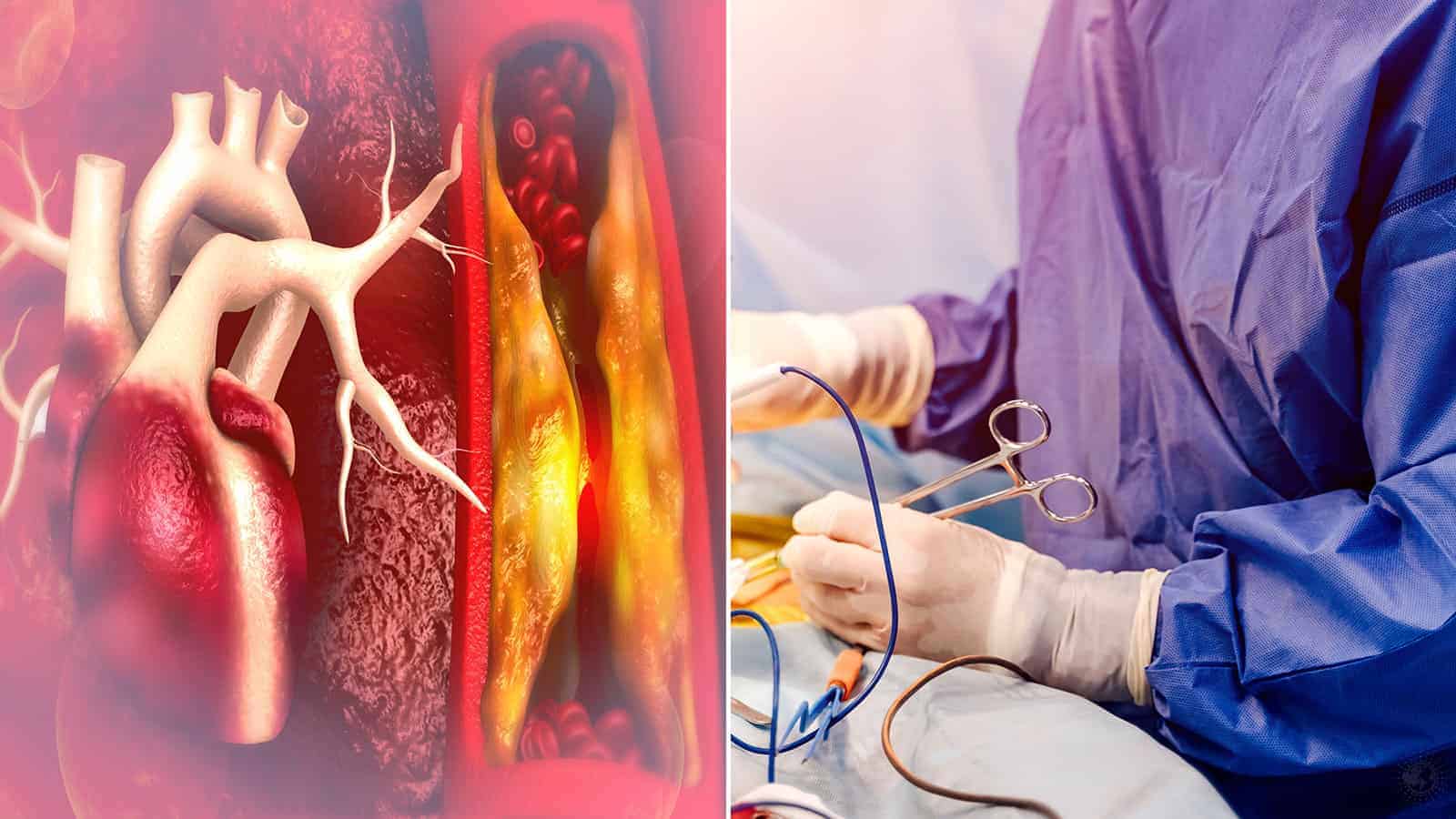Are we overdoing it with heart procedures?
Coronary heart disease can strike at any time due to several lifestyle factors, but we consistently make life choices, which increase our odds of developing it.
According to the American Heart Association, coronary heart disease killed 13% of people in 2016. In fact, coronary heart disease, along with strokes and hypertension, is the #1 cause of death in the United States.
While not 100% preventable, we all know the risk factors associated with it. However, we sometimes choose to indulge in habits that can contribute to it. Furthermore, this often leads many to seek care from physicians. That care may take the form of dietary and lifestyle changes, medications, procedures, or surgeries. In a recent study, however, researchers reveal that many heart procedures may not be necessary.
What is Coronary Heart Disease?
You might have heard coronary heart disease, also called ischemia. The American Heart Association defines it as a condition in which the arteries to your heart are narrowed by plaque, causing a restriction in blood and oxygen flow.
There is ischemia heart disease and silent ischemic heart disease. The main difference between the two is that silent ischemia will not necessarily result in chest pains or angina as a warning. In fact, patients may suffer small heart attacks and not be aware of it. Ischemia, on the other hand, does demonstrate physical symptoms but may have silent ischemia occurring additionally. Those most susceptible to silent ischemia have diabetes and a previous history of heart attacks.
3 Types of Ischemia or Coronary Heart disease
There are three different kinds of ischemia:
1 – Obstructive Coronary Artery disease:
Arteries are blocked by 50% or more due to a build-up of plaque, or atherosclerosis, in the large arteries leading to the heart. The plaque builds up, causing the arteries to narrow over time, decreasing oxygen and blood flow.
2 – Non-obstructive Coronary Artery Disease:
The name is a bit misleading as arteries are still obstructed but by 50% or less. 20-50% of people who have heart imaging performed have non-obstructed coronary artery disease. While in many cases, it occurs due to a build-up of plaque, it can also stem from an illness or injury to the large arteries.
This impact will affect the ability of the arteries to expand when receiving the usual stimuli. When the inner walls to the arteries are damaged, they may spasm, causing a reduction in the amount of blood allowed through to the heart at that time.
3 – Coronary microvascular disease:
As the name implies, the tiny arteries of the heart are affected when molecular changes occur to the micro arteries, preventing blood from flowing through them. This can be a stand-alone condition or in tandem with obstructive or non-obstructive coronary heart disease. A change is created in the molecular structure of the artery, causing a lack of proper response to stimuli, which prevents the arteries from expanding. This condition stems from:
-
- A released blood clot from surgery sticking to a smaller artery
- Normal aging process
- Damage to the micro-arteries from high blood pressure, diabetes or chronic inflammation
What are the factors that increase the risk of ischemia?
There is a multitude of factors that can contribute to causing coronary heart disease or ischemia.
1 – Daily or lifestyle habits:
-
- Smoking or consistent exposure to second-hand smoke
- Lack of exercise
- Eating too many foods containing saturated or trans fats
- Stress
2 – Age (especially true for women)
-
- Risk increases after the age of 45 – more so for men, unless the woman is post-menopausal.
- Women increase their risk after the age of 55 due to lack of estrogen
3 – Environment and Work-related hazards
-
- Older women, diabetics and the obese have a risk factor if they are in an area of high air pollution
- Toxins or radiation that you may be around at work
- Chronic sitting or lack of movement while at work
- High-stress jobs
- Any job which is so demanding that you can’t sleep properly
4 – Family History or genetics
-
- Family members, particularly men, receiving a diagnosis of heart disease before age 55
- Women who received a diagnosis of heart disease before age 65
5 – Being Female with specific history or current conditions
-
- Diabetes
- Endometriosis
- Gestational diabetes
- HIV
- Polycystic Ovary Syndrome
- Preeclampsia – while it occurs during pregnancy, it increases your risk of ischemia for your lifetime.
Typical treatments for ischemia
Treatments for ischemia may depend upon related health issues and the severity of the blockage(s). Preferably, you have time to make changes that don’t require medication, procedures, or surgery. The doctor’s advice will depend upon how early you receive a diagnosis and the amount of time you have to correct it.
1 – Lifestyle changes:
Regardless of the time frame or progression of ischemia, making changes to your habits will always come first and are used in conjunction with other treatments.
-
- Quit smoking
- Change your eating habits
- Exercise
- Take supplements
- Learn to manage and decrease stress
- Lose excess weight
- Quit drinking excessively
- Get high-quality sleep
2 – Medications:
More often, a person has developed additional health issues that may require medication to get them under control immediately. Medicine does not need to be lifelong if you are additionally working on improving your daily health habits.
- Medication for diabetes or blood sugar irregularities
- Blood pressure medication
- Cholesterol limiting medication
- Remedy for angina or chest pains
- Aspirin to thin blood for prevention of blood clots
- Nitroglycerin pills or patches to address chest pain
3 – Heart Procedures:
When the doctor has determined that a more aggressive approach is necessary for faster or immediate help, then specific procedures will be considered.
- Angioplasty and stent placement: This requires a tube to be inserted into the affected artery. A thin wire containing a deflated balloon passes through the tunnel. The balloon inflates, expanding the artery and pressing the plaque against the artery walls. After the plaque is compressed, a stent is placed in the artery to help it remain open.
- Coronary artery bypass surgery: You might also hear this called coronary artery bypass grafting. It entails using arteries from other areas in your body, primarily your leg, and surgically placing it to take the place of the blocked artery.
Are heart procedures necessary or effective?
A national study, called ISCHEMIA, was recently published in clinicaltrials.gov. ISCHEMIA was an acronym for the International Study of Comparative Health Effectiveness with Medical and Invasive Approaches. Of course, the acronym also related to the focus of the study, which was to determine the effectiveness of procedures vs. medication for the treatment of stable coronary heart disease or ischemia.
The study involved 5179 volunteers who had demonstrated mild to moderate ischemia based on stress tests. The researchers split the volunteers into two groups of equal numbers. One group went through either angioplasty with stent placement or coronary artery bypass surgery to aid them in their ischemia while also on medication. The second group only went through angioplasty without a stent placed with a higher focus on lifestyle changes and medication.
The purpose of the study was to determine heart procedure outcomes over four years:
- Which prompted a decrease in angina symptoms
- What factors caused hospitalization of patients with symptoms of angina
- Which patients resulted in having a heart attack
- Of the patients that had heart attacks, which they were able to resuscitate
- Which patients had a higher mortality rate
The results came back mixed in the short term benefits vs. the long term. Those who underwent invasive treatment showed a slightly higher chance of a heart attack in the first year but lowered odds in 4 years. Both options demonstrated little difference between medication and procedures for preventing heart attacks, heart-related deaths, or hospitalization related to heart conditions. The invasive procedure did show to be more beneficial in reducing pain for those with frequent angina or chest pain.
The ultimate conclusion was that patients with stable heart conditions, not experiencing frequent chest pain or angina, should not rush into having an invasive procedure. Instead, doctors should allow for more time with medication and lifestyle changes and be more patient.
 Final thoughts on heart procedures and their necessity
Final thoughts on heart procedures and their necessity
Having a potentially life-threatening procedure is very scary. However, possibly dying in your sleep due to an underlying heart condition is equally terrifying. Frequently, we rely on the experience of our physician to advise us as to the risks and benefits involved, and its actual necessity. It is also essential that we respect the healing powers of our bodies. Make a choice to make better choices about a eating heart healthy diet, exercise, and smoking, rather than seek a supposed ‘quick fix’ for an issue that took 20+ years to develop.
Indeed, researchers did reveal that many heart procedures may not be necessary. And, in actuality, they may exasperate the problem within the first year. So make sure to get multiple opinions regarding any heart procedure based on your condition and genuinely do your part to change your lifestyle as a preventative measure to any procedure.












 Community
Community

